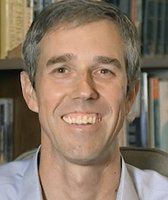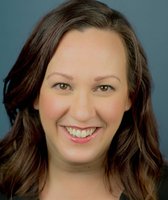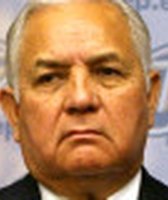Stand up for the facts!
Our only agenda is to publish the truth so you can be an informed participant in democracy.
We need your help.
I would like to contribute
A few minutes into CNBC’s two-hour Republican presidential debate, Ted Cruz of Texas teed off on a question about a pending budget deal in Congress by ripping the panel of reporters facing the 10 candidates.
Asked by Carl Quintanilla if his opposition to the expected deal shows he’s not the kind of problem-solver American voters want, Cruz replied:
"You know, let me say something at the outset. The questions that have been asked so far in this debate illustrate why the American people don't trust the media.
[APPLAUSE]
"This is not a cage match. And if you look at the questions: Donald Trump, are you a comic book villain? Ben Carson, can you do math? John Kasich, will you insult two people over here? Marco Rubio, why don't you resign? Jeb Bush, why have your numbers fallen?
Sign up for PolitiFact texts
How about talking about the substantive issues --
[APPLAUSE]
"... and, Carl, I'm not finished yet. The contrast with the Democratic debate, where every fawning question from the media was, Which of you is more handsome and why? And let me be clear --
QUINTANILLA: "You have 30 seconds left to answer, should you choose to do so."
CRUZ: "Let me be clear. The men and women on this stage have more ideas, more experience, more common sense than every participant in the Democratic debate. That debate reflected a debate between the Bolsheviks and the Mensheviks.
"And nobody watching at home believes that any of the moderators have any intention of voting in a Republican primary. The questions that are being asked shouldn't be trying to get people to tear into each other. It should be what are your substantive --"
Cruz got a chance to comment on the budget deal later.
We thought it might be instructive to compare questions asked of the Republicans and those posed earlier to the Democrats. So we culled the questions only from each debate transcript.
And?
CNN’s Anderson Cooper posed some 70 questions to the five Democrats. CNBC’s cast of reporters submitted less than 60 questions.
No one at the Democratic debate was asked about their looks, though there were some soft questions, perhaps, such as the closing query: "Which enemy are you most proud of?" Also, candidates were asked to appraise Edward Snowden — "hero or traitor?" And Dana Bash asked Hillary Clinton what she would say to small business owners about paying for what she’s already supported — paid family leave, arguably a fat pitch.
A couple weeks later, the CNBC debate opened with a beach ball from Quintanilla, who asked each candidate, "Without telling us that you try too hard or that you're a perfectionist, what is your biggest weakness, and what are you doing to address it?"
Let’s consider questions thrown at the frontrunners for each party.
In the Democratic debate, Cooper asked Clinton whether she’ll say anything to get elected; if she underestimated the Russians per Syria when she was secretary of state; if she should have foreseen the fatal attack in Benghazi; and how her handling of inquiries about her privately kept emails speaks to her ability to handle greater challenges as president. Cooper also asked how Clinton, whom he described as part of the nation’s wealthiest 1 percent, could credibly represent the views of the middle class.
In the Republican debate, CNBC’s John Harwood began by asking Donald Trump first if he’s running the "comic book version" of a presidential campaign and then what to make of Harwood hearing that Trump would have as "much chance of cutting taxes" as much as Trump vows "without increasing the deficit as you would of flying away from that podium by flapping your arms around."
Colorful wording? Guilty. Not substantive? That’s at least debatable.
Trump also was asked why voters should believe his promises given that Trump casinos have been through bankruptcy; where he stands on extending more visas to foreigners to legally work in the U.S.; if he’d be more comfortable if employees brought guns to work; and to elaborate on how he’d grow the economy without touching Medicare or Social Security
When Cruz made his rousing objections, he said that after Trump drew the "comic book" question, retired neurosurgeon Ben Carson was asked if he can do math, Ohio Gov. John Kasich was nudged if he would insult two other GOP hopefuls, Florida Sen. Marco Rubio was asked why he didn’t resign his seat and Jeb Bush was pressed on why his polling numbers had fallen.
That’s Cruz’s summary.
What happened:
--Carson was asked to share how he determined his tax plan wouldn’t leave the government far short of sufficient revenue.
--Kasich was asked which fellow candidates he previously was thinking of when he said they were making crazy proposals.
--Rubio, elected to the Senate in 2010, was asked that partly because he’s been "skipping more votes than any senator to run for president, why not slow down, get a few more things done first, or at least finish what you start" and, in a follow-up, if he "hated" his current job.
--Bush was told that Ben Bernanke, the former chairman of the Federal Reserve, wrote a book in which he said he no longer considers himself a Republican because the Republican Party has given in to know-nothingism. Bush was asked: "Is that why you're having a difficult time in this race?"
See Cooper’s questions to the Democrats here. Read the CNBC panel’s questions here.









































